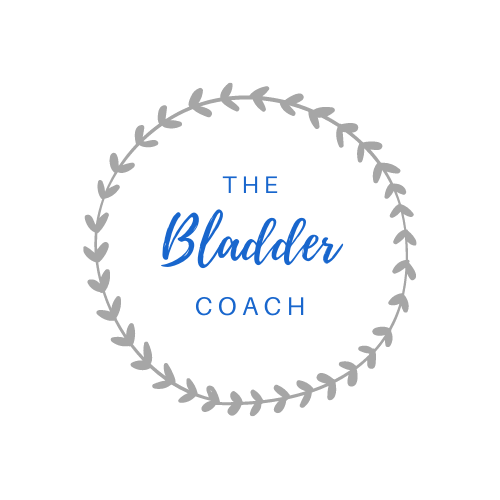How often should you pee?
Have you ever found yourself asking, "How often should I be peeing?" or wondering if your bathroom habits are normal? Well, you're not alone. Urination is a natural bodily function that helps our bodies remove waste and excess fluids. But how often should we be doing it? And what happens if we go too frequently or not frequently enough?
First…….how often should you pee?
The frequency of urination varies from person to person, but on average, most people urinate four to eight times a day. However, it's important to note that this can be influenced by a variety of factors, including fluid intake, medications, and medical conditions.
For example, if you're drinking more water than your body really needs (more than 1/2oz per pound of body weight), you'll naturally need to urinate more frequently. Or if you are making one too many trips through the Starbucks line, the caffeine is going to cause increased urinary frequency. On the other hand, if you're dehydrated, you may urinate less frequently. Additionally, certain medications, such as diuretics, can increase urine production, while other medications, such as anticholinergics, can decrease it.
Why is it bad to go too frequently?
While it's important to stay hydrated, going to the bathroom too frequently can be a sign of an underlying medical condition or lifestyle habit that needs attention.
Frequent urination can be caused by overactive bladder syndrome, urinary tract infections, interstitial cystitis or pelvic floor dysfunction. Overactive bladder syndrome is a condition in which the muscles of the bladder contract involuntarily, causing a sudden urge to urinate. Urinary tract infections can cause a similar sensation, as well as pain or burning during urination. Interstitial cystitis is a chronic condition that causes bladder pain and frequent, urgent urination. Pelvic floor physical therapy is a very effective treatment option for overactive bladder syndrome and interstitial cystitis because it addressed the pelvic floor muscle dysfunction as well as working on behavior modifications.
In addition to being uncomfortable, frequent urination can disrupt your daily routine and even interfere with your sleep. Waking up multiple times during the night to use the bathroom can lead to fatigue and daytime drowsiness. Prior to menopause, you should be able to sleep through the night without needing to empty your bladder (pregnancy is the one exception to this). After menopause, it is normal to wake once per night to pee.
Why is it bad to not go frequently enough?
Not urinating frequently enough can also be a sign of an underlying medical condition or lifestyle habit that needs to be addressed.
If you're not urinating enough, it can be a sign that you're not drinking enough fluids. Dehydration can cause a variety of symptoms, including headache, fatigue, and dizziness. It can also lead to more serious health problems if left untreated. Aim for approximately 1/2oz of water per pound of body weight per day. The one caveat to this is if you eat a lot of very water based fruits and vegetables (think watermelon or cucumber), or if you eat a lot of soup, then you wouldn’t need quite as much water because all non-caffeinated liquid counts towards your total.
If you have a job where you don’t have the opportunity to use the bathroom frequently (i.e. teacher, nurse, etc), then you may have trained yourself to ignore bladder urges and are actually be training your bladder to overfill, which in the long run can lead to a bladder muscle that is unable to contract well when you do need to urinate.
In addition to dehydration, not urinating frequently enough can be a sign of bladder outlet obstruction, a condition in which the flow of urine is blocked. This can be caused by a variety of factors, including bladder stones, or a tumor.
What can you do to maintain healthy bathroom habits?
To maintain healthy bathroom habits, it's important to pay attention to your body and take note of any changes in your urinary habits. If you notice that you're urinating more or less frequently than usual, or if you're experiencing any discomfort or pain during urination, it's important to talk to your healthcare provider.
In general, it's a good idea to drink fluids spaced throughout the day to stay hydrated. Avoid chugging your entire water bottle at the end of the day because you went all day without drinking anything. Caffeine and alcohol can both increase urine production, so it's a good idea to limit your intake of these beverages if you're experiencing frequent urination.
Try to limit “just in case voiding” or the “tactical wee” because this may train your bladder to contract too frequently when it isn’t actually full yet. Normal voiding time throughout the day is every 2-4 hours.
Additionally, it's important to practice good hygiene habits to prevent urinary tract infections. This includes wiping from front to back after using the bathroom, urinating after sexual activity and not pushing to urinate.
If you think you are having some pelvic floor dysfunction, contact us or your local pelvic floor physical therapist for treatment. You can also contact us to help find someone local to you.
THIS WEBSITE DOES NOT PROVIDE MEDICAL ADVICE. The information provided in this blog, including but not limited to text, graphics, images and other material are for informational purposes only. No material on this site is meant to be a substitute for professional medical care, treatment or advice. Always speak to your health care provider with any questions you may have regarding a medical condition or treatment. Never delay or disregard professional medical advice because of something you have read on this website.

